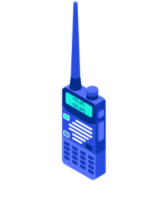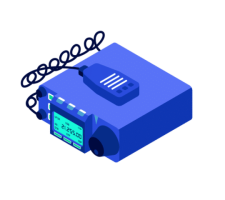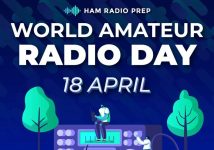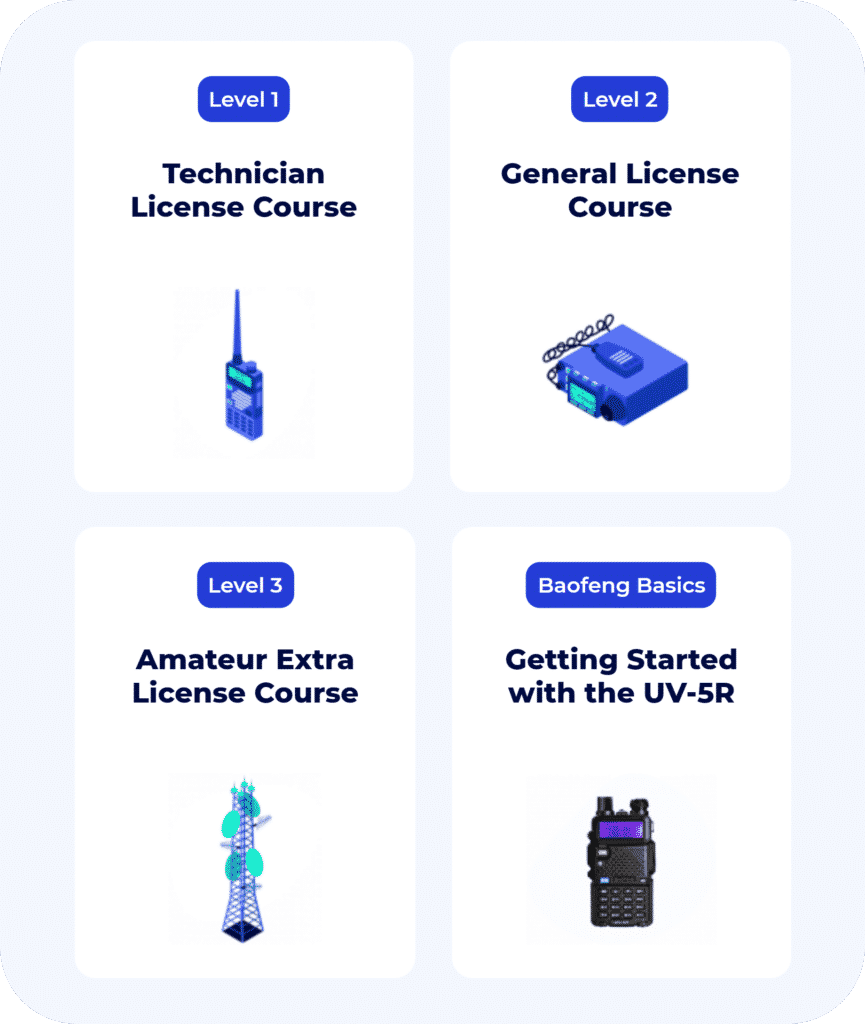In the U.S., amateur radio licenses are issued by the Federal Communications Commission (FCC). There are three license classes: Technician Class, General Class, and Amateur Extra Class. To obtain an amateur radio license, you must pass exams administered by Volunteer Examiners, who are licensed radio amateurs authorized by the FCC to give the exams. Which license class is right for you? Well, it depends on what you want to do with amateur radio and how much you want to learn about the technology.
In this guide:
Technician License
The Technician Class license is the license that most newcomers to the hobby obtain first. This license is the easiest to obtain, but it has the fewest privileges. Because it was originally meant to encourage experimentation, Technician Class licensees have full privileges in the amateur radio bands above 50 MHz. You can operate any mode at power levels up to 1,500 W! Below 30 MHz, privileges are more limited. Technicians can operate CW on 80 meters, 40 meters, and 15 meters and CW and SSB on 10 meters, with a maximum power output of 200 W.
The Technician License Test
To get a Technician Class license, you must pass an exam with 35 multiple-choice questions. On this exam, you will be asked questions about basic electricity and electronics, radio-wave characteristics, radio operation, operating procedures, and the rules and regulations that govern amateur radio. While the exam is not easy — especially for those without any technical background — it’s not rocket science, either.
The questions on the test are written so as to ensure that you’ve been exposed to some of the basic concepts of amateur radio. To answer the questions on basic electricity and electronics, for example, you’ll need to know Ohm’s Law, how to calculate power, and something about schematic diagrams and the component symbols that you find on them. Knowing these things will help you choose the right equipment, deal with problems that arise, and, in general, be a more successful amateur radio operator.
Technician License Privileges
Even with less than full privileges, Technicians can do a lot of cool things, including:
- Operate a repeater station. Repeater stations help local hams keep in touch with one another, and if you connect your repeater to the EchoLink, DMR, D-STAR, or other digital networks, your repeater users can make contacts with hams around the world.
- Make contacts via satellites. There are many low-Earth orbit (LEO) satellites--including the International Space Station--circling the Earth that are available for amateur radio use. Think of them as cross-band repeaters in the sky, receiving transmissions from ground stations on the 2-meter band and repeating those transmissions in the 70-centimeter band (or vice versa). Because Technicians have full privileges in those bands, they are allowed to operate the satellites.
- Operate drones. Operating drones with your amateur radio privileges give you more range than you can achieve with unlicensed equipment.
- Participate in emergency communications. Most emergency communications is local communications and takes place on VHF and UHF frequencies.
- Set up a mesh network. Mesh networks are wide-area networks that use radio links--usually at frequencies above 900 MHz--to connect nodes. Mesh networks are often used for emergency communications in situations where cell towers and internet service has been interrupted.
- Operate CW on the HF bands. While Technicians are limited to operating CW on most HF bands, and CW and SSB phone on 10m, some do get on these frequencies and make long-distance contacts with station both inside the U.S. and in foreign countries.
General License
The General Class license is for those who want to do more in amateur radio. General Class licensees can do all of the things that Technicians can, but they are given more HF privileges, most notably, can operate digital modes and SSB phone on the HF bands below 28 MHz. Generals can also operate at full output power of 1500 W, on most of the HF bands.
The General License Test
The General Class exam is also a 35 question test, but answering the questions correctly requires more in-depth knowledge. For example, some questions ask you to calculate the power in an AC circuit. To answer the questions correctly, you must understand the concept of RMS voltage and how to calculate the RMS value of an AC waveform. Other examples include questions on digital logic and components, such toroidal inductors.
General License Privileges
In addition to doing all of the cool things that Technicians can do, Generals get to:
- Operate digital modes. Generals can operate all digital modes on HF, including FT8, which has become the most popular mode--not just the most popular digital mode--on the HF bands.
- Operate SSB phone on HF bands below 28 MHz.
- Operate on the 20-meter band. The 20-meter band is arguably the best band for “working DX,” that is to say making contacts with stations in foreign countries.
- Operate in more contests. Because Generals have more operating privileges, they are able to more fully participate in amateur radio contests than are Technicians,
- Administer amateur radio examinations. Generals can become Volunteer Examiners (VEs), although they are only allowed to administer Technician Class exams.
Amateur Extra License
The Amateur Extra Class exam is for those who want to do it all in amateur radio. Amateur Extra Class privileges include all of the privileges given to Technician Class and General Class licensees, plus the use of all frequencies and modes on the HF bands. But, you get more than just privileges. The knowledge gained by studying for the Amateur Extra Class test gives you the background you need to experiment with antennas and electronics with more confidence.
Amateur Extra License Test
The Amateur Extra Class exam is a 50-question test and to pass the test, you’ll need some in-depth knowledge of electronics and radio phenomena. For example, some questions ask you about the differences between different types of logic devices. Other questions ask you to analyze and answer questions about antenna radiation patterns and the Smith Chart. This is not a test that you can pass by just memorizing the answers.
Amateur Extra License Privileges
In addition to doing all of the cool things that Technicians and Generals can do, Extras can:
- Operate voice, data, and CW on HF frequencies set aside solely for Amateur Extra Class operators. These frequency privileges allow Extra Class operators to more easily work DX stations and operate under less crowded conditions.
- Administer all three amateur radio license examinations.
Which license is right for you?
A Technician Class license will meet the needs of many amateur radio operators. As they gain experience in the hobby, many will choose to pursue a General Class or Amateur Extra Class license and get the privileges associated with those licenses. It all depends on what you want to do in amateur radio. Whatever class you choose, the most important thing is to have fun.
| Class | Exam Questions | Privileges | VE privileges | Typical activities |
|---|---|---|---|---|
| Technician | 35 | All privileges above 50 MHz. CW, SSB on 10 m, CW on 80 m, 40 m, and 15 m. | Cannot administer amateur radio exams. | - VHF/UHF repeaters - Emergency communications - Weak-signal VHF/UHF communications - Satellite communications - Drones |
| General | 35 | world-wide communicationsAll Technician Class privileges, plus CW, phone and digital on selected portions of all the amateur radio bands. | Can only administer Technician Class exams. | - DXing - Contesting - HF digital modes - Award chasing |
| Amateur Extra | 50 | All amateur privileges. | Can administer Technician, General, and Extra Class exams. | - DXing - Contesting - Experimenting - Volunteer exam administration |
Grandfathered Licenses
The Novice and Extra Licenses
If you search the FCC license database, or consult a frequency allocation chart, you’ll find that there are still licensees with Novice and Advanced Class licenses. The FCC allowed these operators to keep their license after they quit issuing new ones. As long as they keep renewing the licenses, these hams will have the privileges they were given when they obtained those licenses.











